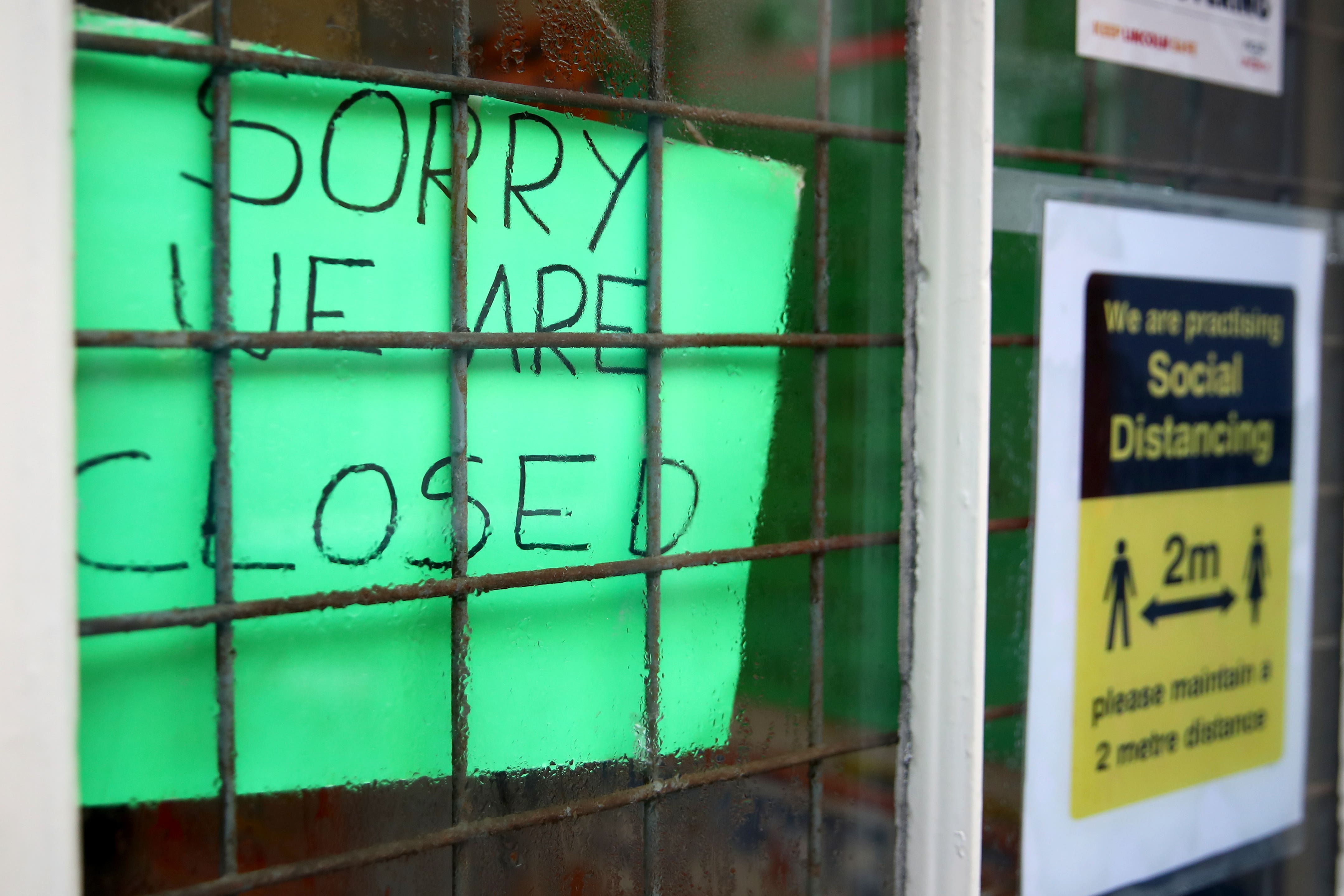Firms miss out on £300m of pandemic business rates relief
The Government has confirmed that it handed out only 80% of the cash available from its £1.5 billion Covid-19 Additional Relief Fund.

Your support helps us to tell the story
From reproductive rights to climate change to Big Tech, The Independent is on the ground when the story is developing. Whether it's investigating the financials of Elon Musk's pro-Trump PAC or producing our latest documentary, 'The A Word', which shines a light on the American women fighting for reproductive rights, we know how important it is to parse out the facts from the messaging.
At such a critical moment in US history, we need reporters on the ground. Your donation allows us to keep sending journalists to speak to both sides of the story.
The Independent is trusted by Americans across the entire political spectrum. And unlike many other quality news outlets, we choose not to lock Americans out of our reporting and analysis with paywalls. We believe quality journalism should be available to everyone, paid for by those who can afford it.
Your support makes all the difference.Businesses hit hard by the pandemic missed out on around £300 million of business rates relief, according to analysis of new Government figures.
The Government has handed out only 80% of the cash available from its £1.5 billion Covid-19 Additional Relief Fund (CARF), which was designed to aid businesses such as commercial landlords which were not covered by other tax relief schemes, according to analysis by experts at Gerald Eve.
The CARF was announced on March 25 2021 to help those not covered by the Treasury’s Retail, Hospitality and Leisure (RHL) Relief Fund and other packages.
However, the onus was put on local authorities to allocate funding to businesses and the deadline to pay the relief was September 30 2022.
While the Government positioned its Covid-19 Additional Relief Fund as a support package for business, the fact that it replaced the right to appeal rates during the pandemic already meant that companies were being short-changed
Authorities handed the support funding to the likes of office occupiers, warehouses and manufacturers.
The fund was introduced to replace rates appeals made by hundreds of thousands of businesses, which the Government annulled retrospectively.
New Government filings also revealed that only 261,520 properties benefited from the Government’s RHL Relief Fund, despite promises that up to 400,000 would be able to use the scheme to claim a 50% business rates discount.
Jerry Schurder, business rates policy lead at Gerald Eve, said: “From the pandemic to sky-high energy bills and an uncertain economic outlook, businesses have had a lot to contend with in recent months.
“While the Government positioned its Covid-19 Additional Relief Fund as a support package for business, the fact that it replaced the right to appeal rates during the pandemic already meant that companies were being short-changed.
“Now, data showing that only 80% of the cash promised has been distributed adds insult to injury, with the Exchequer snaffling up the balance.
“Our research in August revealed that local authorities had been slow to pay out support, with only 50% having made any payments with just two months to go until the deadline.”
At the recent autumn statement the Chancellor extended the RHL support for a further year and improved the scheme by increasing the discount to 75%, but still with a £110,000 per business cap.
Mr Schurder said: “The principal reason why fewer than two-thirds of eligible businesses have been able to access the 50% RHL discount is that the Prime Minister, when chancellor, placed a cap of £110,000 on the amount that each business can receive, rather than per property.
“This means that retailers and hospitality operators with multiple sites cannot benefit other than for their first few properties.”